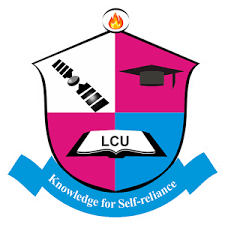On May 29, 2023, Bola Tinubu became Nigeria’s 16th president. He took over from Muhammadu Buhari, who was president from 2015 to 2023. Tinubu won the election with 8.79 million votes, facing competition from 17 other candidates. Only about 30% of Nigerian voters took part in this election, which was the lowest turnout since 1999.
In his first year, President Tinubu and his team have made many changes that have affected the economy. One important change is the new student loan policy, which aims to help more students go to college.
New Student Loan Policies
In June 2023, President Tinubu signed a bill to start a Students Loan Fund. This fund will give interest-free loans to students for higher education. Femi Gbajabiamila, the former Speaker of the House of Representatives, proposed this bill. The loan program was supposed to start in late 2023 but will now begin in January 2024.
So far, over 3,700 students from 126 schools have registered for these loans. In March 2024, Tinubu asked the National Assembly to improve the student loan bill, making it more effective. The Senate and House of Representatives passed the updated bill, and it became law in early 2024.
Impact on Students
Tinubu’s student loan policies have helped many Nigerian students, especially those who cannot afford college. These low-interest loans make it possible for more students to go to school. This has increased the number of students enrolling in universities and colleges, leading to a more educated workforce.
The loans also reduce the financial burden on students and their families, allowing students to focus more on their studies. This has led to better academic performance and higher graduation rates.
Impact on the Education Sector
The new student loan policies have also helped improve Nigeria’s education system. More students can now go to college, which helps meet the demand for skilled workers. This makes the job market more competitive, with graduates better prepared for available jobs.
The policies encourage universities and colleges to improve their education quality. Students can now choose schools based on academic excellence, not just cost. This has led to better teaching standards, more research, and overall better performance in schools.
Challenges and Future Plans
While the new student loan policies have many benefits, some challenges remain. These include making sure the loan program is sustainable, preventing misuse of funds, and helping students in remote areas. The government needs to keep checking how well the policies work and make changes as needed.
Looking ahead, the future of Tinubu’s student loan policies looks promising. By building on current successes and addressing challenges, the government can further improve the education sector. President Tinubu’s administration is focused on investing in education and supporting students, paving the way for a better future for Nigeria.
Views from Stakeholders
Hon. Terseer Ugbor, a representative from Benue State, said Tinubu’s first year has laid the groundwork for significant progress. He believes the student loan policy is one of the president’s best achievements, helping more students access higher education and supporting national development.
Broad Impact on Education
Bishir Sabuwar, from the civil society organization Nigeria First Project, praised Tinubu for his efforts to improve education. Sabuwar highlighted the establishment of new public universities and technical colleges, which aim to help Nigeria’s growing student population. He emphasized the need for more educational institutions to meet the high demand for higher education.
Conclusion
President Tinubu’s student loan policies are changing Nigeria’s educational landscape. By providing financial support to students, these policies make higher education more accessible and improve the job market. While there are challenges, the progress so far is encouraging. Tinubu’s administration is committed to investing in education, setting a strong foundation for Nigeria’s future growth and development.





